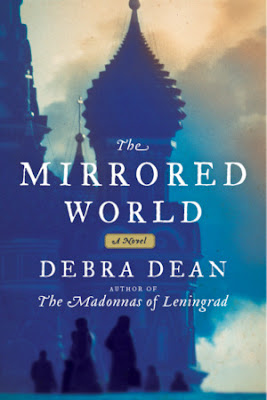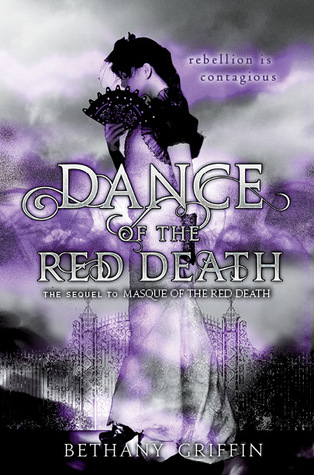Author: Debra Dean
Genre: historical fiction
Series: N/A
Pages: 256 (hardcover)
Published: August 2012
Source: TLC Book Tours for review
Rating: 3.5/5
The bestselling author of The Madonnas of Leningrad returns with a breathtaking novel of love, madness, and devotion set against the extravagant royal court of eighteenth-century St. Petersburg.
Born to a Russian family of lower nobility, Xenia, an eccentric dreamer who cares little for social conventions, falls in love with Andrei, a charismatic soldier and singer in the Empress's Imperial choir. Though husband and wife adore each other, their happiness is overshadowed by the absurd demands of life at the royal court and by Xenia's growing obsession with having a child—a desperate need that is at last fulfilled with the birth of her daughter. But then a tragic vision comes true, and a shattered Xenia descends into grief, undergoing a profound transformation that alters the course of her life. Turning away from family and friends, she begins giving all her money and possessions to the poor. Then, one day, she mysteriously vanishes.
Years later, dressed in the tatters of her husband's military uniform and answering only to his name, Xenia is discovered tending the paupers of St. Petersburg's slums. Revered as a soothsayer and a blessed healer to the downtrodden, she is feared by the royal court and its new Empress, Catherine, who perceives her deeds as a rebuke to their lavish excesses. In this evocative and elegantly written tale, Dean reimagines the intriguing life of Xenia of St. Petersburg, a patron saint of her city and one of Russia's most mysterious and beloved holy figures. This is an exploration of the blessings of loyal friendship, the limits of reason, and the true costs of loving deeply.
Lyrical, visual, and beautifully told, Debra Dean impressively evokes eighteenth century Petersburg, Russia with ease here in her newest historical fiction novel. The Mirrored World boasts lovely prose, unforgettable characters, and an engaging tale. This is the deceptively simple but very compelling story of two cousins - Xenia, the "Holy Fool" and Dasha, her devoted and quiet counterpart - as they live through the lives and deaths of their husbands and of the multiple reigning Empresses in 1700's Russia. Vivid and lushly rendered, Dean's style and talent for atmosphere create a memorable and unique read. Elegantly and with an eye for detail and place-as-character, Dean's recreated Russian society is alluring, dangerous, and always unpredictable.
I enjoyed this look into Dasha and Xenia's unusual life, both when they are together and when Xenia strikes out on her own, but I didn't quite love it. The lives of saints and holy fools make for interesting fodder for an audience to read, but truly capturing their spirit on the page can be very hard. Xenia is more knowable/accessible in the first half of the novel - before she loses her beloved husband - and Dasha is quite removed and distant for the entire novel. It's hard to get a close read on either, and I struggled to emotionally connect with the characters at the heart of the novel. That isn't to say these two women aren't thoroughly interesting, because they invariably are. Their lives closely mirror one another early on; from unusual marriages (for love, with a eunuch), estrangement from their birth families, early widowhood, etc., these two women are far from the norm expected of their sex in their era. I just never felt like I was especially invested in what would happen to either.
Both main characters are presented well enough; it's just that the pace and speed at which the story moves can make it even more difficult to get a grasp on either one, or on their husbands. Dasha, as the narrator, has the benefit of a well-rounded first-person inner monologue, but she is more passive observer than passionate participant. I wanted more life from Dasha - even when she is married, she continually holds part of herself back. She never reads like she is fully in the moment, or living her life. Perhaps seeing her beloved cousin so wrecked by heartache Dasha hesitates to go down the same road; and fearing to get hurt, ventures very little in the way of genuine emotion. And though she does also lose her husband, Dasha emerges as a much different woman than Xenia when that happens later on in her life.
For a novel about a saint, or a holy fool, there is not much said about religion itself in The Mirrored World. The contrast of the "haves" and the "have-nots" is much more on display than any church dogma. As someone who is unlikely part of each group in Russian society, Xenia evolves as an interesting and complicated figure. Someone who is chastened for her generosity and unusual way of life while her former compatriots strive to ignore the less fortunate, Xenia's extreme piety would both help her and harm her in the eyes of fellow Russians. Xenia's marked evolution from slightly spoiled girl to grieving and utterly selfless "matushka" is evenly-handled. Dean never explicitly explains the mindset of her version of St. Xenia, but she does create authentic pathos for this woman came to be revered as a saint of her native city.
The Mirrored World will appeal to readers who look for more than just a look at royalty/nobility in their historical fiction. In her unique position as both noble and beggar, Xenia Grigoryevna provides a new perspective into the life of Russia during the reigns of three Empresses: Anna, Elizabeth, and Catherine. In a novel characterized by its strong women, it is the two main characters that will remain the most memorable. Dean's talent for lovely prose is obvious and lends well to an evocative and rich setting in which the characters flourish. The Mirrored World may feel a bit short, and gloss over periods of time too quickly, but it cannot be denied that it is a captivating and alluring read.




















